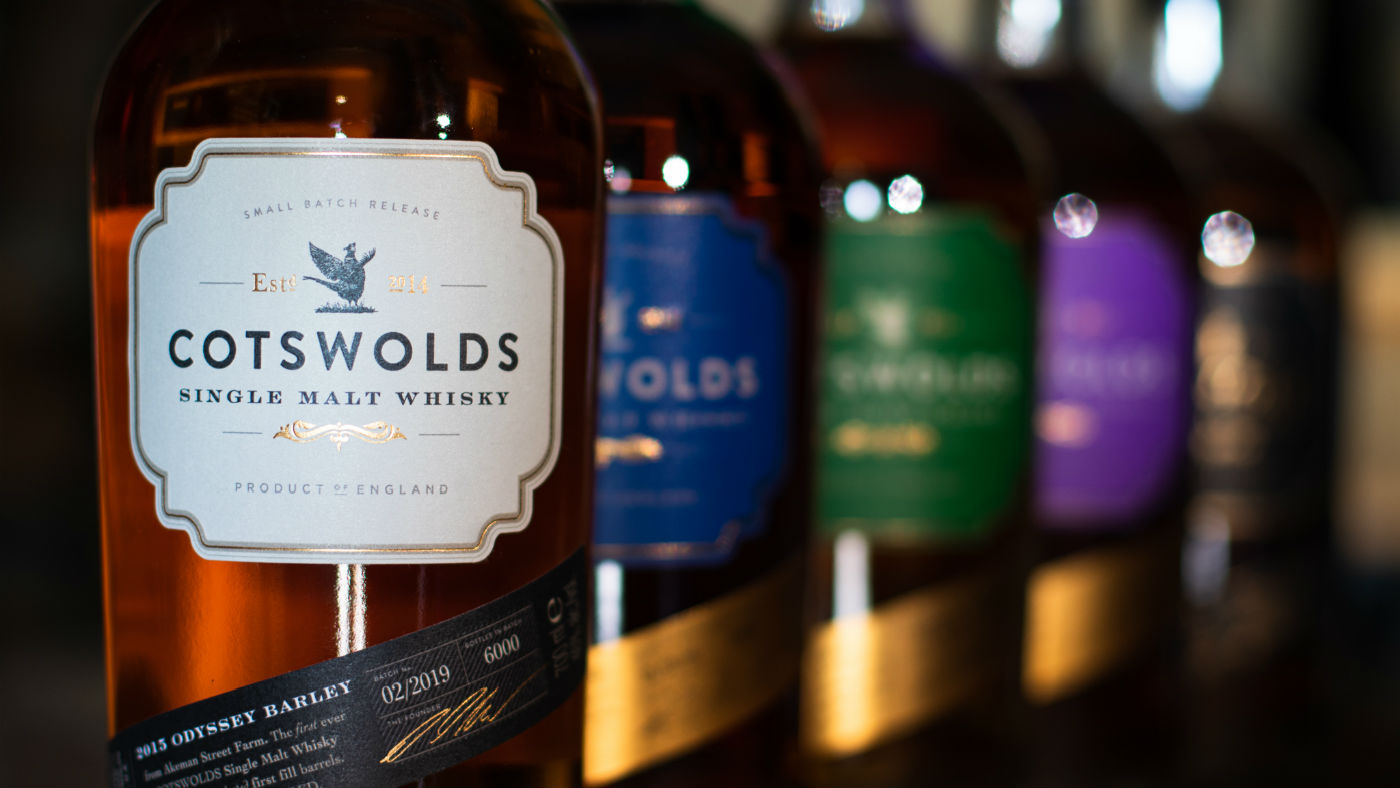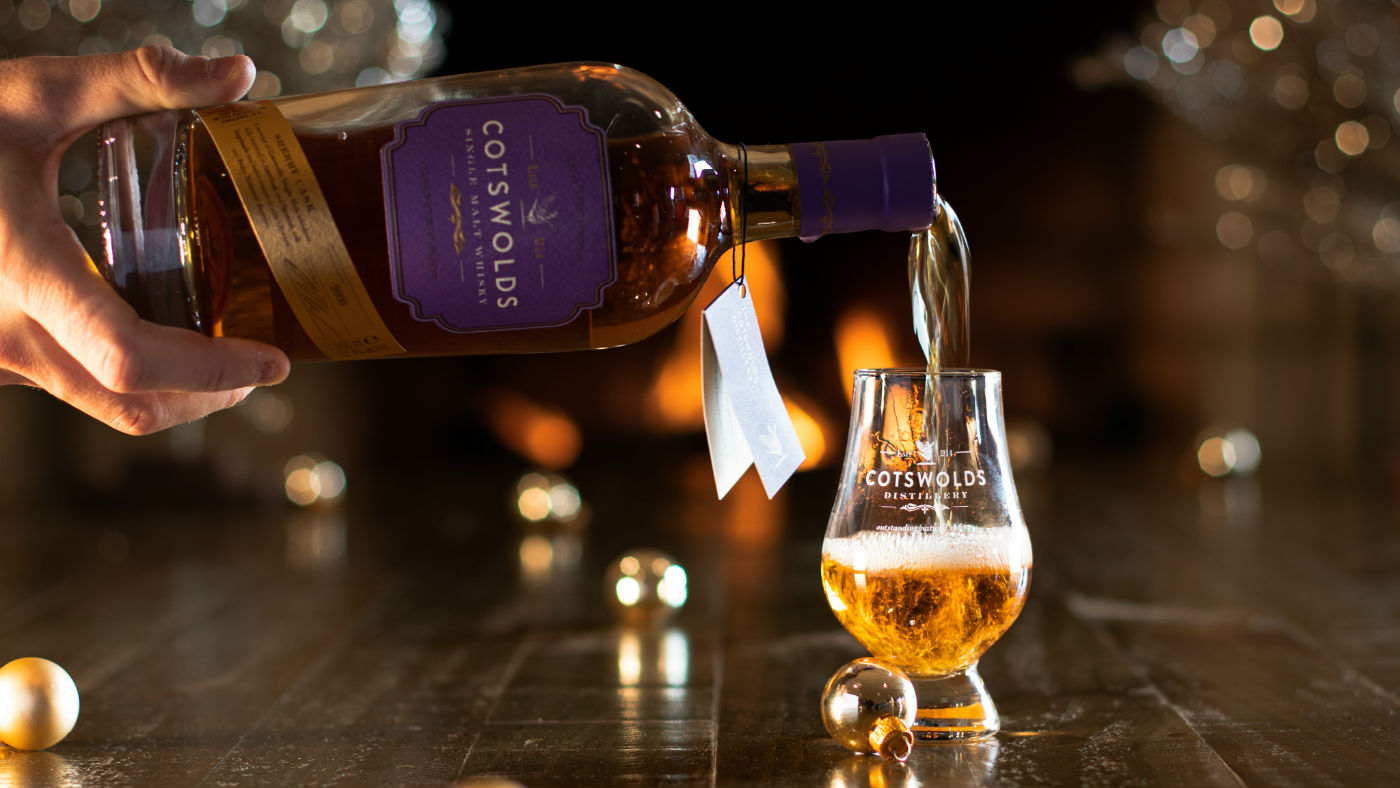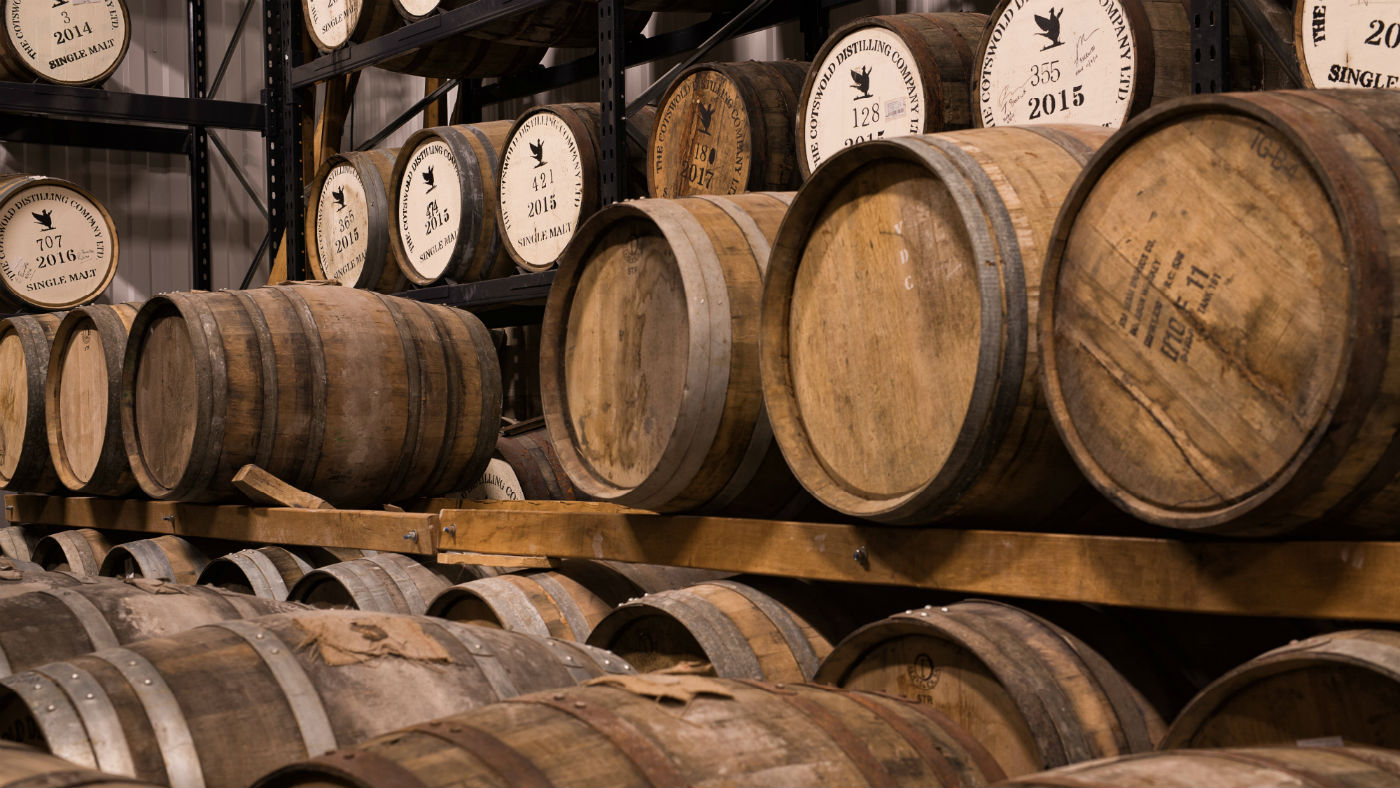A beginner's guide to buying whisky for Christmas
The team from the Cotswolds Distillery share their insight on how whisky is made, the various styles and the top tips for drinking a dram

A free daily email with the biggest news stories of the day – and the best features from TheWeek.com
You are now subscribed
Your newsletter sign-up was successful
Although whisky (or whiskey) can be enjoyed all year round, there's nothing better than drinking a dram on a cold winter's night in front of a roaring fire. From Scotch to bourbon, there are many styles of the popular spirit, which makes it an incredibly diverse category which appeals to all ages, both male and female.
Whisky is also a very popular gift for Christmas. If you're a non-whisky drinker and looking to buy a bottle for a loved one – but not sure where to start – then you're in luck.
In this beginner's guide, the team from the Cotswolds Distillery in England explain how whisky is made and the differences between the styles.
The Week
Escape your echo chamber. Get the facts behind the news, plus analysis from multiple perspectives.

Sign up for The Week's Free Newsletters
From our morning news briefing to a weekly Good News Newsletter, get the best of The Week delivered directly to your inbox.
From our morning news briefing to a weekly Good News Newsletter, get the best of The Week delivered directly to your inbox.
What is whisky and how is it made?
In a nutshell, whisky is a spirit distilled from grain (generally corn, rye, wheat or malted barley) and typically aged in oak barrels. The Cotswolds Distillery's single malt whiskies are made from 100% locally grown barley from the Cotswolds, which is traditionally floor-malted by hand for several days.
It is then combined with water before yeast is added to convert the sugars into alcohol – the fermentation process at the Cotswolds Distillery is longer than most as it means the spirit will have lots of fruity flavours.
We then carry out double distillation in our beautiful copper pot stills, during which we only select the purest spirit and discard any impurities, and finally the spirit is left to mature in cask for a minimum of three years.
Not all of the spirit ends up in the bottle, however; some is lost in the ageing process due to evaporation – this is known as the "Angel's Share". We bottle all of our whisky onsite and do not add any artificial colouring – the colour of our whisky is completely natural.
A free daily email with the biggest news stories of the day – and the best features from TheWeek.com
What is the difference between a single malt and blended whisky?
Single malt whisky is always produced from one single distillery and the whisky must be made using 100% malted barley (barley that has been allowed to germinate and then dried). Typically, a combination of cask types and ages of whisky are blended together from a single distillery to create a specific flavour profile, but this does not mean it is a "blended whisky".
Blended whisky uses spirit from more than one distillery which is blended together to make the final product. These whiskies can be made using more than one grain, for example corn, rye and wheat. If labelled "blended malt whisky" then the whisky has been produced using exclusively malted barley from more than one distillery.

What are the different effects that barley, water and ageing can have on the flavour, smell or taste of whisky?
Every whisky distillery's production methods are built around extracting flavour from the barley to give the new make spirit its flavour; this flavour is more well known as the "distillery character" found in the whisky.
Water is used in the production of whisky to break down starches within barley and convert these to sugars that can be converted into alcohol by yeast in the fermentation phase. When making our single malt whiskies, we use local water which is filtered, softened and demineralised.
Ageing the spirit has a great impact on the flavour due to many different factors, the spirit over time will interact with the wood that is used whether it is chestnut, French oak or, more commonly, American oak, and also with whatever has been previously aged in the cask, from the common bourbon and sherry casks to more unique wine casks like sauternes and even peated whisky.
What is peated whisky?
Peated whisky has a distinct smokey flavour and is made by adding peat (partially decomposed organic matter) to the fire during the drying process of the malted barley. The peat smoke produces flavour compounds which are absorbed by the barley grain. There are also other ways, however, to obtain a peated flavour without adding peat to the fire.
Peat bogs are not found in the Cotswolds, so we use maturation to add a peated flavour to our spirit. When making our Cotswolds Peated Cask Single Malt Whisky, we take our un-peated spirit and age it in a cask that previously held a peated whisky, resulting in a wonderfully-balanced rich and fruity whisky with a subtle smoked peat flavour - perfect for a novice whisky drinker.
Where is whisky made?
Whilst Scotland is famous for producing whisky, there are many countries now producing whisky across the globe, from Iceland to Australia. English whisky is produced by distilleries south of the Scottish border and is now a very exciting, rapidly-expanding category worth exploring. A few years ago there were only a handful of English distilleries producing whisky; there are now more than 20.
Why do some whiskies state age on a bottle?
In the UK, all whiskies legally have to be matured for a minimum of three years. Distilleries will sometimes differentiate their bottlings typically by age or by what cask/combination of casks it has matured in. An age statement on a bottle, for example 12 years old, simply means the youngest whisky in the bottle has aged for a minimum of 12 years in cask.

Does age matter?
Age definitely influences the whisky's flavour, but this doesn't mean it's the most important factor to consider when buying a whisky. In fact, not all whiskies will have an age on the label. As previously mentioned, the flavour of a whisky can vary drastically depending on the type of cask used, or the quality of the cask and the conditions in which the cask is stored, amongst many other things.
Why does the price of whisky vary so greatly?
The price of whisky can vary enormously due to a number of different factors. More expensive whiskies are likely to have been produced in very small quantities, been matured in rare casks or have been aged for a longer period of time.
Our Cotswolds Single Malt Whisky is sold for around £45. From sourcing our barley locally and traditionally floor-malting it by hand for several days, to carefully ensuring our spirit is smooth, pure and free from any impurities, we don't cut any corners and believe in taking our time to lovingly craft each and every batch of our single malt whisky.
As a result, our Cotswolds Single Malt is rich and fruity with notes of honey, Seville orange marmalade and dark red fruits. It has won more than 25 awards since its launch just three years ago, including gold medals at the World Whiskies Awards and IWSC, and two stars from the Great Taste Awards.
How should you drink whisky?
However you like! Whether you like to drink it neat, over ice or with a few drops of water, we don't believe in rules when it comes to enjoying whisky. Our single malt whisky is delicious topped up with ginger ale and a slice of orange, or mixed with soda water for a longer, refreshing serve. For something a little different, you could always try making a classic whisky cocktail, such as an Old Fashioned or a Whisky Sour if you're feeling adventurous!
See more at cotswoldsdistillery.com